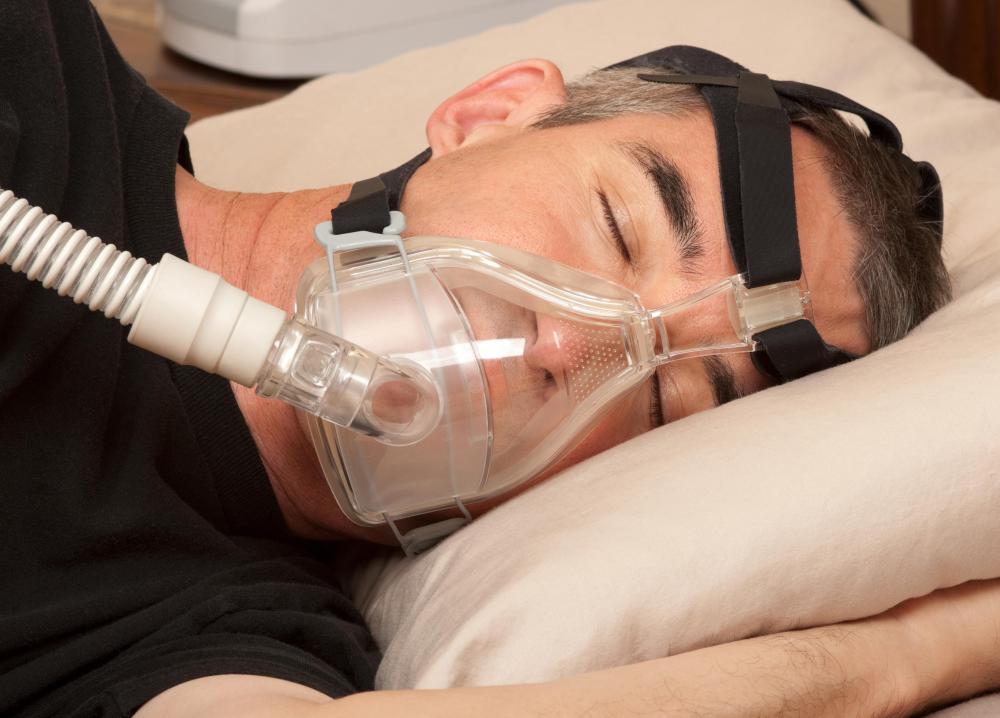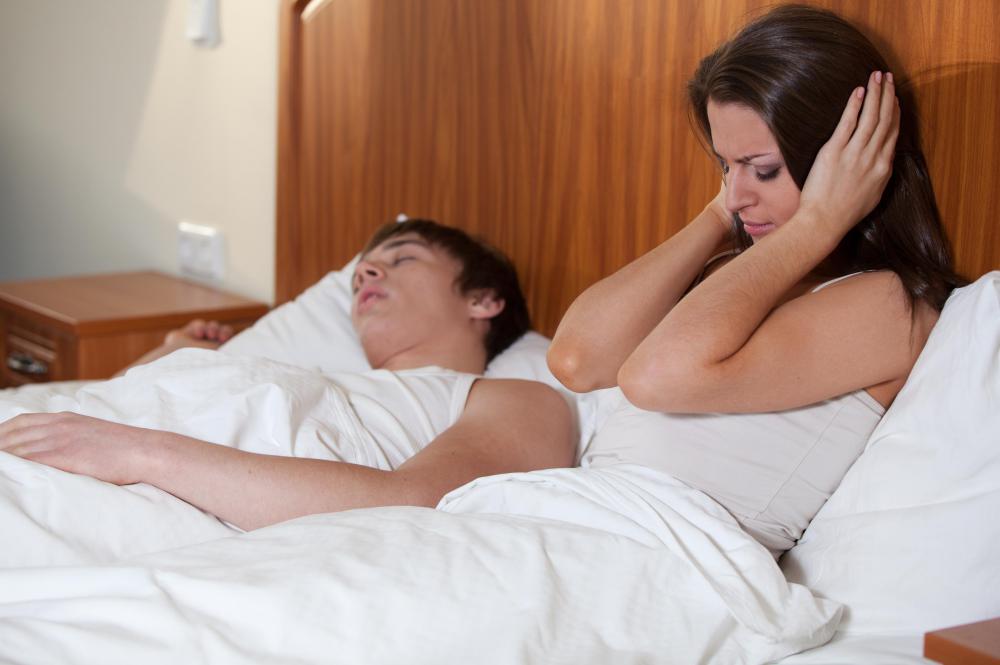At WiseGEEK, we're committed to delivering accurate, trustworthy information. Our expert-authored content is rigorously fact-checked and sourced from credible authorities. Discover how we uphold the highest standards in providing you with reliable knowledge.
What is a CPAP Device?
A continuous positive airway pressure (CPAP) device is a small machine used to help people who suffer from sleep apnea or other conditions that negatively affect breathing, either at night or during daily activity. A CPAP device works by releasing a continuous, slightly pressurized stream of air directly into a person's nose, which allows for unobstructed breathing. With the regular use of a CPAP device, an individual is usually able to maintain healthy sleeping patterns, breathe easier, and enjoy higher levels of physical activity.
The main component of a CPAP device is a small, portable compartment that quietly compresses and releases air. There is often a digital or analog display screen on the compartment which indicates that the CPAP device is operating and the amount of air pressure that it is generating. Medical professionals can determine, preset, and adjust air pressurization levels based on an individual's specific condition and needs. People who experience excessive nasal dryness can obtain CPAP models that are equipped with small humidifiers.

As air exits the main compartment of a CPAP device, it travels up a plastic hose to a face mask or small nasal piece. The face piece creates a vacuum seal around the nose, forcing the pressurized air into a person's airways at a constant rate. Many different types of masks and nose devices are available at medical supply stores, and individuals often test out multiple designs to determine which one fits most comfortably.

An individual with sleep apnea can benefit greatly from the use of a CPAP device. Apnea often results in difficulty breathing at night, which in turn leads to a lack of oxygen in the blood. Lowered oxygen levels can cause an afflicted person to wake up suddenly, struggling to breathe. When equipped with a CPAP device, the individual's airways remain open through the night and oxygen levels in the blood are continuously replenished.

People may find CPAP devices to be clumsy or uncomfortable at first, but with proper adjustments to face masks and practice using devices during the daytime, most individuals are able to use them with ease. After just a few nights of using CPAP devices, people often find partial or complete relief from sleep apnea and other conditions that constrict airways and disturb sleeping patterns, including snoring and low respiratory rates. Most people who suffer from breathing problems at night utilize CPAP devices for months or even years to sleep soundly, have more energy, and breathe freely.
AS FEATURED ON:
AS FEATURED ON:
















Discussion Comments
My spouse hates the device, and the costs of every tube, filter etc are ridiculous. Over $8 for a simple disposable filter? Is it a need or a scam? It will cost over $600 per year, with insurance paying the rest, just to maintain the machine. Nothing turns one off faster than having your spouse kissing plastic.
@dfoster85 - Well, if you sleeping in another room didn't do it, I don't know that anything will! But you can tell him about my father. He is a heavy drinker and we thought his extreme sleepiness was caused by the whiskey and by being overmedicated for bipolar and ADHD. He would sleep twelve hours at night and then would still fall asleep routinely during the day, for up to a couple of hours.
Then he finally agreed to have a sleep study and got the CPAP machine. He's a different person! He sleeps eight or nine hours (he's a mechanic, so at his age he does get tired) and stays awake all day. Christmas was different this year, because he was awake instead of snoozing in his chair like every year since I was a kid.
We knew that he would sleep better with the sleep apnea machine, but not what a big difference it would make. It's not even like we got him "back"--he is more awake and alert than I can ever remember him being.
How can I convince my husband to try a CPAP machine? His snoring is so bad, I have to sleep in another room, and he's been diagnosed with sleep apnea. But he sleeps on his side and insists he could never get used to the machine. I feel like it could help him enormously, but he won't listen.
Post your comments